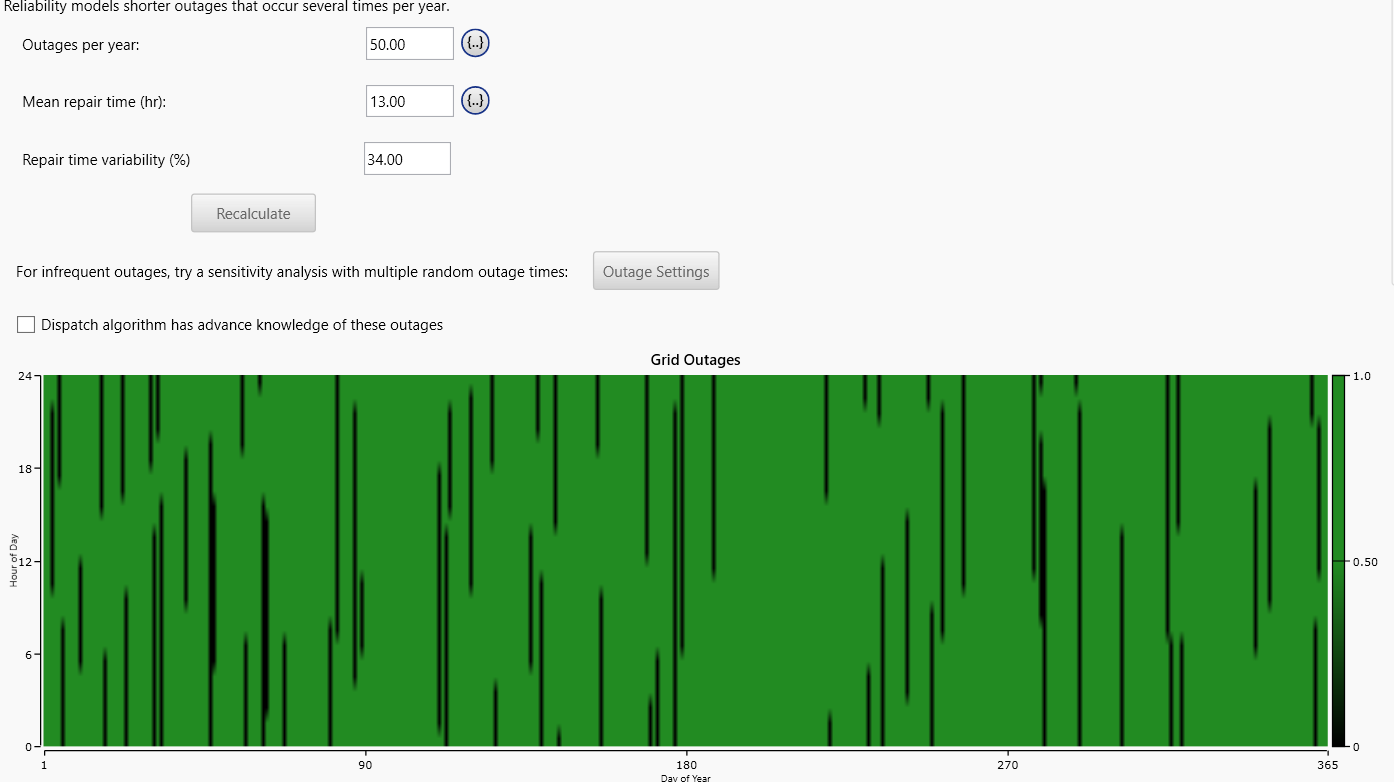
HOMER Grid 1.10

The Reliability tab allows you to specify grid outages that occur multiple times a year. You may set parameters to generate random outages throughout the year. Outages are modeled as one or more time steps in which no electricity can be purchased from or sold to the grid.
You may choose to specify the failure frequency (outages per year) and duration using the inputs. HOMER generates the outage time series and displays the outages in the Grid outages DMap below. Outages appear in black; regular grid operation appears in green. The grid outage time series, as displayed here, is used in all simulations.

Variable |
Description |
Mean failure frequency |
Number of times the grid will fail per year. |
Mean repair time |
Mean duration of grid outages, in hours. |
Repair time variability |
The standard deviation of a grid failure duration expressed as a percentage of the mean. Percentages higher than 100% are allowed. |
HOMER generates each random outage by selecting a pseudo-random time step from the year-long simulation period. HOMER then chooses the duration of that outage by selecting a pseudo-random number from a normal distribution specified by the "Mean repair time (h)" and "Repair Time Variability (%)" inputs. HOMER tries to generate distinct, non-overlapping outages equal to the number specified for "Mean outage frequency (1/yr)". As it chooses the time-step index for each outage, HOMER only chooses an index that does not overlap with an existing outage, if possible. If there are too many outages (or the durations are too long), some outages do overlap.
You may choose to allow HOMER to randomize the occurrences of these outages. Please check the Random Seeds section for more details.
Dispatch Algorithm has advanced knowledge of these outages
This option is available in the Resilience and the Reliability menus. This determines whether the dispatch can know about the outage in advance. If you select this option the dispatch can make sure the battery is fully charged before the outage occurs. This can be more realistic in some cases: if you are modeling an outage associated with a hurricane, we usually would have plenty of warning time to charge up the battery. This option won't make any difference for systems that don't have a battery.
The "advanced knowledge" option is not compatible with the "battery outage reserve" option.
With advanced knowledge selected, the dispatch picks demand limits with knowledge of the outages. With the battery outage reserve option, HOMER picks demand limits without knowledge of the outages, but picks them such that a fraction of the battery isn't used for peak shaving. The dispatch can't do both of these strategies at the same time.

